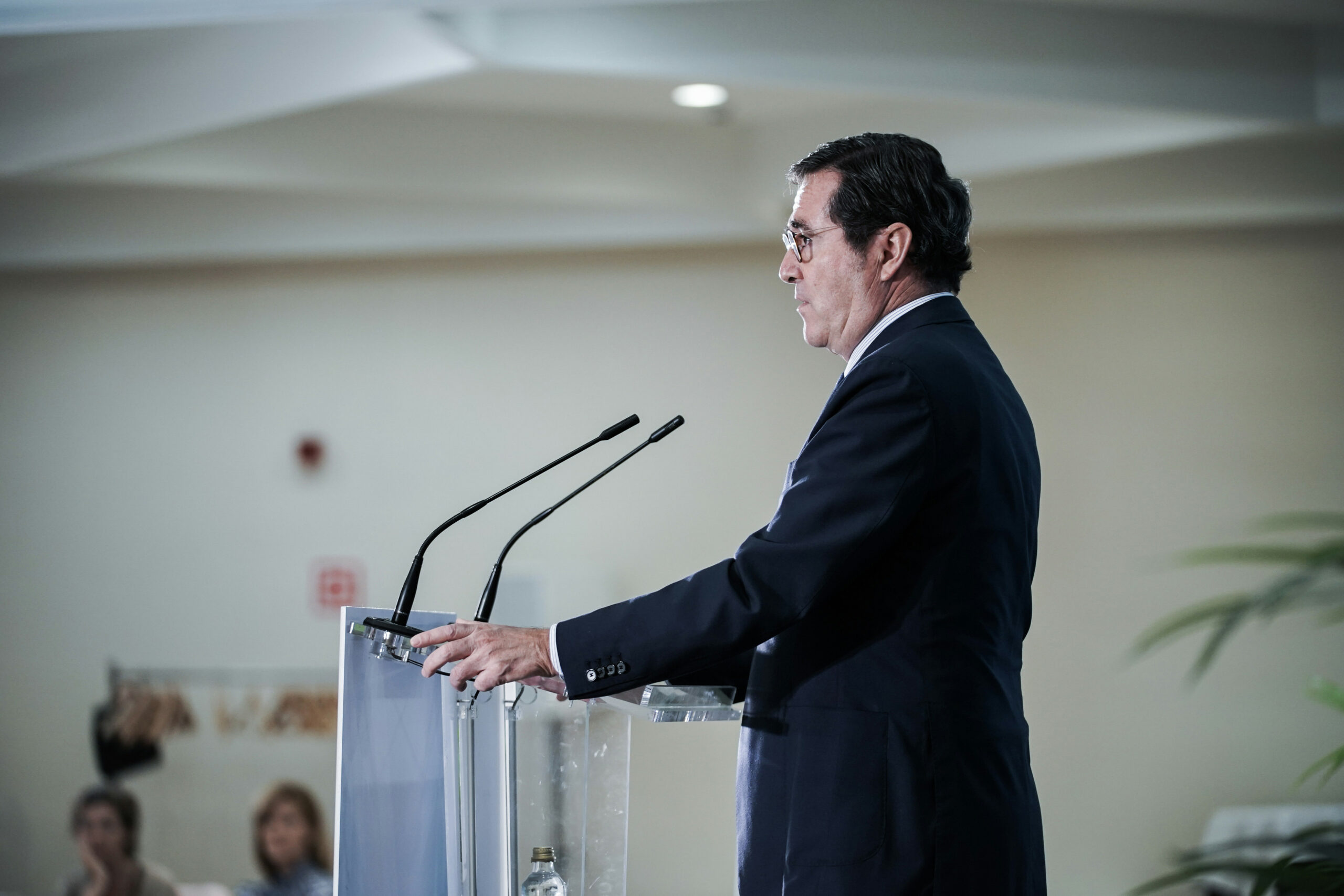
BURGOS, 1 (EUROPA PRESS)
The president of the Spanish Confederation of Business Organizations (CEOE), Antonio Garamendi, recalled this Thursday in Burgos that pensions are “a very serious issue” and that the parties must “sit down responsibly and seriously” to talk about it, although Regarding the pension reform proposed by the Minister of Inclusion, Social Security and Migration, José Luis Escrivá, Garamendi has indicated that he is not a “supporter”.
Garamendi recalled that on September 12 the employers met and more than two months have passed until the next meeting. “There is a rush to approve what the minister says,” criticized the president of the businessmen, who confessed that they are not “supporters” of the opinion of Minister Escrivá.
“They have to be sustainable, and with the system they are proposing we do not think they are,” he stated, also stressing that the new proposed model goes against companies because “competitiveness” is lost and he has asked that they think How will it be in 20 years?
For this reason, he has reiterated to the political parties the importance of “sitting down very seriously and calmly” to talk about this reform. “Today, what has been proposed to us we do not share. It is essential that the Toledo Pact sit down and say what must be done ”, he concluded.
THE GOVERNMENT INSISTS ON EXPANDING THE PENSION CALCULATION
The Ministry of Inclusion, Social Security and Migrations has defended this Thursday at the social dialogue table on pensions its proposal to extend the pension calculation period from 25 to 30 years, with the discarding of the two worst years of contribution.
The Government has proposed, as part of the second phase of the reform of the pension system, calculating the pension with the best 28 years of contribution within a total period of 30 years.
The Ministry has defended in the meeting this Thursday that extending the pension calculation period to 30 years, eliminating the two worst, “better protects the pensions of new entrants in the labor market against less linear careers”, which which is occurring more and more frequently, according to sources from José Luis Escrivá’s portfolio.
During the meeting on Thursday, the Government has communicated to unions and businessmen that it will compile the proposals they have made at the negotiating table. For now, he has quoted them again for next December 12.
The proposal that the Ministry of Escrivá transferred last Monday to CC.OO., UGT, CEOE and Cepyme as a starting point for negotiation contemplated the progressive extension of the pension calculation period from 25 to 30 years between 2027 and 2038. During those 12 years, the calculation period would be extended by five months per year, with the worker being able to choose the three most favorable months for his contribution and discard two.
Thus, for example, in 2027, the year in which this progressive process of extension of the calculation period would start, it would reach 25 years and five months; in 2030 it would be 26 years and eight months, and in 2038 it would reach 30 years, but with the discarding of the two worst years of contributions, the pension would be calculated with 28 years of contributions.
Likewise, in the document presented last Monday to the social agents, and to which Europa Press has had access, the Government raises the possibility of linking the evolution of the maximum contribution bases to the criterion of revaluation of pensions, that is, to the Average interannual CPI for the twelve months prior to December, plus an additional annual increase of 1,154 points between 2025 and 2050.
Thus, between 2025 and 2050, it is proposed that each year’s Budget laws be the ones that set the increase in the maximum bases taking into account the previous parameters (the CPI and the additional increase of 1,154 points). In the event that the average inflation that is taken as a reference to raise pensions is negative, only the additional increase of 1,154 points will be applied.
This increase in the maximum contribution bases would be accompanied by an increase in the maximum pension, although not in the same proportion. In this way, the Government proposes that the maximum pension also rise between 2025 and 2050 with the inflation reference established for contributory pensions and the minimum pension (average CPI for the twelve months prior to December), plus an additional percentage of 0.115 points , therefore lower than that proposed for the maximum bases.
As of 2050, the Ministry proposes that, within the framework of social dialogue, the additional increase to be applied to the maximum pension be determined “until a real accumulated increase of 30% is reached.”
As is also proposed for the maximum bases, if the inflation reference is negative, the maximum pension will only rise by the additional increase established (0.115 points until 2050, according to the Government’s proposal).
The Ministry of Inclusion, Social Security and Migration wants to agree with the social partners before the end of the year on these two remaining milestones to complete Component 30 of the Recovery, Transformation and Resilience Plan.


